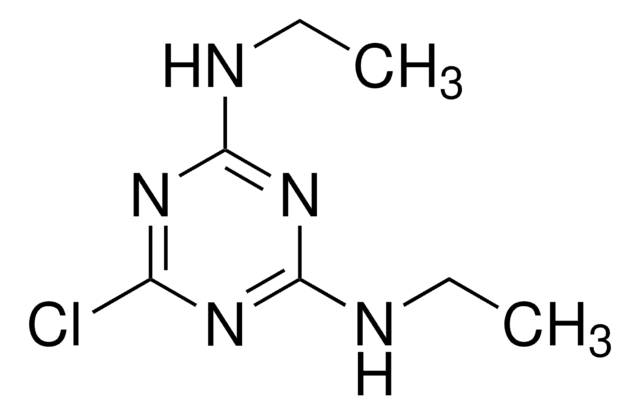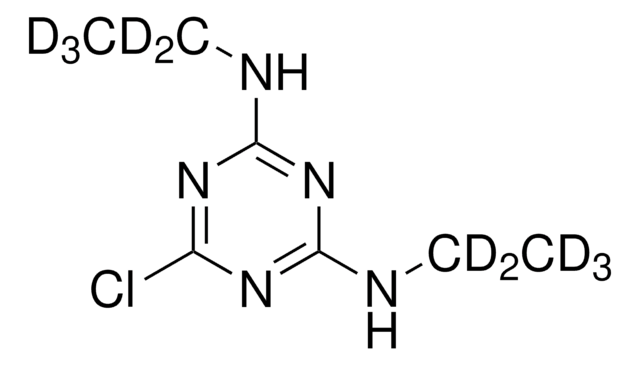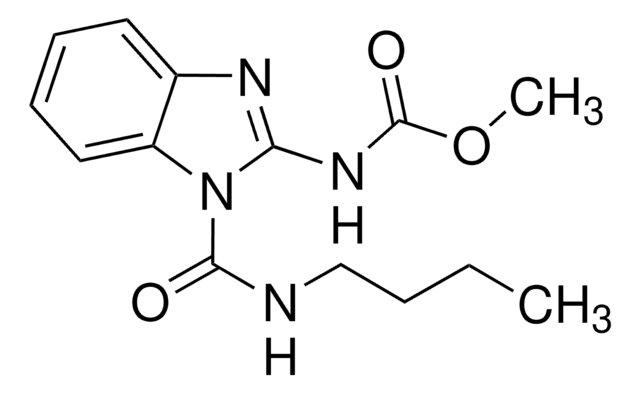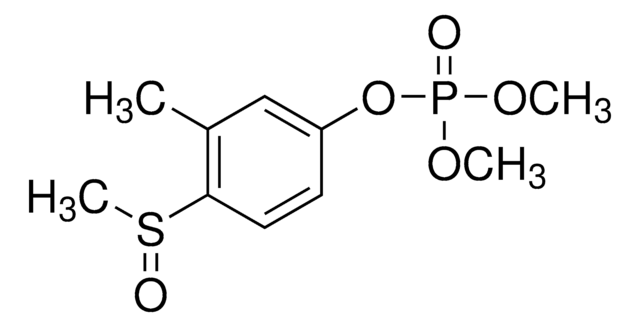36588
Simazine solution
100 μg/mL in methanol, PESTANAL®, analytical standard
About This Item
Recommended Products
grade
analytical standard
Quality Level
product line
PESTANAL®
shelf life
limited shelf life, expiry date on the label
concentration
100 μg/mL in methanol
technique(s)
HPLC: suitable
gas chromatography (GC): suitable
application(s)
agriculture
cleaning products
cosmetics
food and beverages
personal care
format
single component solution
storage temp.
2-8°C
SMILES string
CCNc1nc(Cl)nc(NCC)n1
InChI
1S/C7H12ClN5/c1-3-9-6-11-5(8)12-7(13-6)10-4-2/h3-4H2,1-2H3,(H2,9,10,11,12,13)
InChI key
ODCWYMIRDDJXKW-UHFFFAOYSA-N
General description
Application
Legal Information
related product
Signal Word
Danger
Hazard Statements
Precautionary Statements
Hazard Classifications
Acute Tox. 3 Dermal - Acute Tox. 3 Inhalation - Acute Tox. 3 Oral - Flam. Liq. 2 - STOT SE 1
Target Organs
Eyes,Central nervous system
Storage Class Code
3 - Flammable liquids
WGK
WGK 2
Flash Point(F)
51.8 °F
Flash Point(C)
11 °C
Personal Protective Equipment
Regulatory Listings
Regulatory Listings are mainly provided for chemical products. Only limited information can be provided here for non-chemical products. No entry means none of the components are listed. It is the user’s obligation to ensure the safe and legal use of the product.
FSL
Group 4: Flammable liquids
Alcohols
Hazardous rank II
ISHL Indicated Name
Substances Subject to be Indicated Names
ISHL Notified Names
Substances Subject to be Notified Names
JAN Code
36588-2ML:4548173905389
36588-BULK:
36588-10ML:4548173905372
36588-1ML:4548173262420
36588-VAR:
Choose from one of the most recent versions:
Certificates of Analysis (COA)
Don't see the Right Version?
If you require a particular version, you can look up a specific certificate by the Lot or Batch number.
Already Own This Product?
Find documentation for the products that you have recently purchased in the Document Library.
Protocols
Separation of Atrazine-desethyl; Metoxuron; Hexazinone; Simazine; Cyanazine; Methabenzthiazuron; Atrazine; Monolinuron; Diuron; Isoproturon; Metobromuron; Metazachlor; Sebuthylazin; Linuron; Metolachlor
Our team of scientists has experience in all areas of research including Life Science, Material Science, Chemical Synthesis, Chromatography, Analytical and many others.
Contact Technical Service









